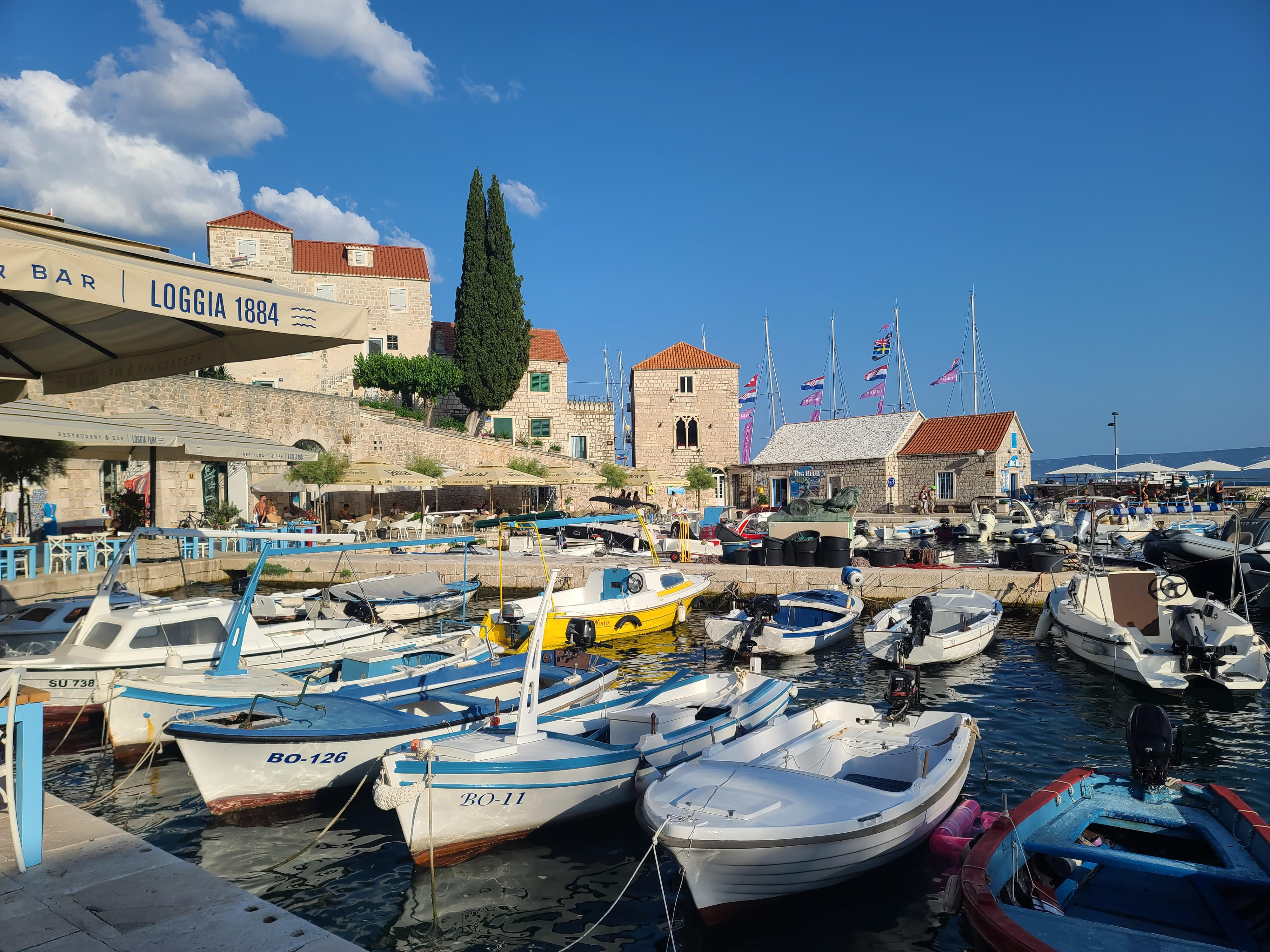Press Release
Systems Support Continues Delivering Premier Managed IT Solutions to Boston and South Shore Small Businesses
United States, 19th Mar 2025 — Systems Support, a trusted provider of professional IT services since 1989, continues to set the standard for exceptional managed IT solutions and cybersecurity services tailored specifically for small businesses across Boston and the South Shore. Renowned for bringing enterprise-grade technology to local businesses, Systems Support empowers organizations with reliable, scalable, and secure IT solutions.
About Systems Support
Founded in 1989, Systems Support has proudly served small businesses across Boston and the South Shore, offering comprehensive IT services designed to streamline operations, improve cybersecurity, and ensure data integrity. With a steadfast commitment to client success, Systems Support, located at 462 Plain St STE 206, Marshfield, MA 02050, helps local businesses harness advanced enterprise technology without the complexities.
Specialized Managed IT Services for Small Businesses
Understanding the unique technology challenges faced by small businesses, Systems Support provides tailored managed IT services that boost efficiency, reliability, and productivity. By proactively monitoring systems, optimizing IT performance, and offering responsive support, their managed IT services ensure minimal downtime and maximum productivity for Boston-area companies.
Robust Cybersecurity Solutions for Total Business Protection
In a world of evolving cyber threats, Systems Support delivers robust cybersecurity solutions designed specifically for small and mid-sized businesses. Their expert cybersecurity services protect sensitive business data, provide proactive threat detection, and secure critical IT infrastructure. Local businesses can operate confidently, knowing their technology is safeguarded against emerging threats.
Reliable Data Backup and Disaster Recovery Services
Systems Support ensures businesses are always prepared for the unexpected with advanced data backup and disaster recovery solutions. Leveraging secure data backup systems and rapid recovery methods, the company minimizes downtime and protects businesses from data loss or IT disruptions, keeping essential data accessible and secure.
Flexible Cloud Services for Optimized Business Operations
Systems Support simplifies cloud adoption for small businesses with customized cloud computing services, enabling them to enhance productivity, scalability, and efficiency. By transitioning critical operations to the cloud, businesses benefit from improved collaboration, secure data access, and increased operational agility.
A Legacy of Trust, Quality, and Customer Satisfaction
With over three decades of serving the Boston and South Shore regions, Systems Support remains dedicated to exceeding customer expectations through personalized support, responsive communication, and proven technical expertise. The company continues to build lasting partnerships by ensuring clients receive the most reliable IT services tailored precisely to their needs.
About Author
Disclaimer: The views, suggestions, and opinions expressed here are the sole responsibility of the experts. No Digi Observer journalist was involved in the writing and production of this article.
Press Release
Mark Andrew Kozlowski Calls for Smarter Ocean Innovation in New Feature Spotlight
Nova Scotia, Canada, 16th July 2025, ZEX PR WIRE, Marine technology entrepreneur and ocean conservation advocate Mark Andrew Kozlowski is using the momentum from a recent feature article on his work to rally support for sustainable, data-driven ocean solutions. In the interview, Kozlowski shares his journey from building underwater robots as a boy in Nova Scotia to founding Blue Horizon Technologies, an AI-powered marine innovation company with a global impact.

Now, he’s urging the public—especially in coastal and river cities like London—to take action.
“You don’t need a billion pounds or a PhD to start solving real problems,” says Kozlowski. “You need time, tools, and a reason to care.”
The Challenge: Why Ocean Innovation Matters Now
The Blue Economy—economic activity tied to oceans, coasts, and waterways—is valued at over £3.2 trillion globally and supports more than 3 billion people. Yet, according to the UN, 90% of marine fish stocks are overexploited or at their limits. Rising sea levels threaten millions of homes across the UK and beyond.
Kozlowski believes the solutions lie not just with policymakers or corporations, but with ordinary people, schools, and grassroots efforts.
“We need more citizen science, more local stewardship, more hands-on engagement,” he says. “The sea can’t just be seen as a backdrop. It’s part of our home—and our future.”
What He’s Advocating For
Drawing from his personal story and Blue Horizon’s international projects, Kozlowski is pushing for three core actions:
-
Integrate ocean literacy into education systems.
“Every child should meet the ocean before they grow up afraid of it,” he says. His foundation funds school trips and community workshops that teach practical marine science. -
Support low-impact infrastructure in coastal cities.
He points to projects that use living shorelines, not concrete walls, to prevent erosion while restoring marine habitats. -
Leverage data and open-source tools.
“We gave Chilean fishers real-time data on where the fish would be—and it changed everything,” he explains. His team wants more communities to have access to affordable monitoring tech.
A Global Message with Local Impact
Although Kozlowski’s work spans five continents, his approach is deeply local. Whether it’s Nova Scotia or London, he says the key is blending science with lived experience.
“The Thames has its own voice. The North Sea has patterns. We just need better ears to listen,” he says. “Innovation doesn’t always look like Silicon Valley. Sometimes it looks like a teenager in a tide pool with a phone and a sketchpad.”
His feature interview highlights how London’s tech scene, riverfront developments, and climate resilience plans could benefit from this more grounded, nature-informed approach.
Take the First Step Toward Ocean Action
Mark Andrew Kozlowski isn’t asking people to wait for top-down change. He’s inviting individuals, educators, and small businesses to act now:
-
Educators can bring marine science into classrooms with tide pool visits or local water testing projects.
-
Startups and designers can explore eco-friendly materials and smart marine sensors.
-
Residents can advocate for green infrastructure along their rivers, beaches, and canals.
-
Everyone can learn more about the Blue Economy and share that knowledge in their own communities.
“The more we understand the sea, the better we’ll treat it—and the better it will treat us,” he concludes.
To read the full interview, visit the website here.
About Mark Andrew Kozlowski
Mark Andrew Kozlowski is the founder and CEO of Blue Horizon Technologies, a marine innovation company specialising in AI-powered ocean monitoring, sustainable fisheries tools, and offshore clean energy systems. He is also the founder of the Kozlowski Foundation for Ocean Literacy, a board member of Ocean Supercluster Canada, and a recipient of the Order of Nova Scotia.
About Author
Disclaimer: The views, suggestions, and opinions expressed here are the sole responsibility of the experts. No Digi Observer journalist was involved in the writing and production of this article.
Press Release
Brač Island, Unfiltered: Ammar Jali’s Journey into the Quiet Corners
Michigan, US, 16th July 2025, ZEX PR WIRE, Ammar Jali, known for dissecting the pulse of places, has completed an expedition to Brač Island, Croatia. This wasn’t a leisure trip but a deep dive into the island’s unvarnished reality, a stark observation of its enduring character, far removed from any idyllic facade. This journey marks a distinct departure from his previous urban explorations, offering a stark, unromanticized glimpse into the understated life of Brač.

Jali’s previous immersions into Split’s ancient yet functioning heart and Zagreb’s quietly introspective soul. They were marked by a quest to understand how history breathes within the present and how cities leave an emotional imprint. In Split, he analyzed Diocletian’s Palace not as a roped-off relic but as a living, breathing urban space, where Roman columns integrated into wine shops and deliveries navigated ancient pathways. Zagreb, in contrast, offered a lesson in slow unveiling, a city that rewarded patience and touched through honesty rather than grandeur.
Brač Island, however, presented a different kind of subject altogether. Here, Jali found no grand historical complexes actively housing contemporary life, nor the introspective hum of a capital city. Instead, he encountered a landscape defined by its rugged authenticity, reliance on ancient trades, and a local life that proceeds with an almost stoic indifference to external perception.
His exploration began not with a predetermined itinerary, but with a deliberate choice to disengage from the typical tourist gaze. Jali’s interest lay in the island’s foundational industries. He observed the ubiquitous presence of Brač stone, not as a decorative element, but as the very bedrock of the island’s economy and identity. He spent time in quarries, witnessing the raw extraction process, and in workshops, noting the precise, unhurried craftsmanship passed down through generations. No romantic narrative spun around the stone; it was simply a material, a livelihood.
Venturing into the island’s interior, Jali encountered olive groves that stretched for miles, their gnarled trees a testament to centuries of cultivation. His engagement with local olive oil production was purely empirical: observing the harvest, the pressing, and the simple, unadorned packaging. He noted the absence of elaborate branding or marketing; the quality of the oil spoke for itself, a product of direct labour and traditional methods. Similarly, he explored the island’s sheep farming and cheese production, observing the pragmatic cycles of animal husbandry and the straightforward process of cheese making, devoid of any performative elements for visitors.
His culinary experiences on Brač further solidified this objective perspective. Meals were taken in unassuming konobas, Croatian taverns serving local dishes like grilled fish, stews, and risottos. The dishes were robust, dictated by seasonal availability and local agricultural output, not by international palates. Grilled lamb, local cheeses, and simple vegetable preparations formed the core of his diet. Jali noted the unhurried service and the portions that reflected practical sustenance, not an indulgence. The food, he observed, was a direct expression of the island’s resources and traditions, without attempting to “tell a story”.
Jali deliberately sought the island’s small, functional ports and fishing villages. He observed the daily routines of fishermen, the mending of nets, and the unloading of catches. These were not picturesque scenes staged for visitors, but essential activities for the island’s sustenance. The interaction between locals was direct, their conversations pragmatic, centred on the day’s work and the sea’s conditions.
His journey to Brač was not about finding emotional resonance or grand conclusions, as in Zagreb. Nor was it about observing the “continuity” of urban life, as in Split. Instead, Brač offered a stark clarity, a testament to an existence fundamentally intertwined with its immediate environment. The island did not attempt to present itself as anything other than what it is: a place where life is lived with quiet, unyielding practicality, shaped by its landscape and enduring traditions.
Ammar Jali’s time on Brač Island underscores his enduring commitment to understanding places on their terms, stripping away preconceived notions and observing the raw essence of their functionality. His findings provide a compelling, unvarnished portrait of an island that thrives not on spectacle but on its steadfast adherence to its roots.
Ammar Jali is a distinguished urban explorer and cultural observer known for his unique methodology of immersing himself in diverse environments to understand the nuanced interplay between history, culture, and contemporary life. His journeys are characterized by profound observation and an analytical approach, seeking to uncover the authentic character of places beyond superficial narratives.
To learn more visit: https://ammarjali-travel.com/
About Author
Disclaimer: The views, suggestions, and opinions expressed here are the sole responsibility of the experts. No Digi Observer journalist was involved in the writing and production of this article.
Press Release
“Stay Local, Think Global”: Brandon St-Jacques Champions Early-Stage International Collaboration in Film
Quebec-based producer urges creators to protect cultural identity while forging global partnerships from development onward
Montreal, QC, 16th July 2025, ZEX PR WIRE, As global streaming platforms increasingly turn to non-English content to meet growing demand, Quebec-based film producer Brandon St-Jacques is calling for a shift in how local creators approach international partnerships. His message: cultural specificity should be a strength, not a limitation—and international collaboration should begin at the development stage, not after the cameras roll.

“What resonates globally often is the local,” says St-Jacques. “The accents, the rituals, the architecture—those are what give a story its edge. We don’t need to erase them to reach a bigger audience. We need to build around them.”
The call comes in response to rapid changes in global viewing habits. In 2023, over 58% of Netflix’s most-watched original content was non-English. South Korean, Spanish, German, and French-language series have proven that audiences are more open than ever to subtitles—and to unfamiliar cultures, provided the story connects.
“People used to think international success meant speaking English or sanding off cultural detail,” St-Jacques explains. “But look at Lupin, Dark, or Money Heist. They were local first—and global second.”
The Missed Opportunity: Late-Stage Partnerships
St-Jacques warns that many Canadian and Quebecois productions miss out on international success by waiting too long to bring global partners on board.
“Too often, producers secure international support only after the script is locked and casting is done,” he says. “At that point, you’re just asking for money. What you really want is creative collaboration—someone who helps shape the vision and bring global insight early on.”
He points to one of his recent projects, where partnering with a Belgian co-producer during early development opened doors to new financing tools, festival access, and a European audience—without diluting the Quebecois story.
Key Figures Driving the Message
- $11.5 billion was invested in non-English content by global streamers in 2023 alone (Ampere Analysis)
- Only 6% of Canadian screenwriters identify as Francophone, highlighting the need for greater investment in talent development to sustain Quebec’s content pipeline (WGC Diversity Report)
- Canadian series still represent less than 1.5% of global Netflix content, despite strong local production capacity
Brandon’s Call to Action: What Creators Can Do
St-Jacques urges writers, directors, and producers to take ownership of both their cultural voice and their international ambitions—starting with three simple shifts in approach:
1. Think globally at the concept stage.
Ask: Who is this story for—beyond our borders? What universal themes does it tap into?
2. Make international contacts early.
Festivals, incubators, and co-production markets are not just for pitching—they’re for listening, learning, and finding creative allies.
3. Respect your cultural markers.
Don’t erase what makes the story unique. If it’s local slang, keep it. If it’s a setting only locals would recognise, amplify it.
“We need to stop treating cultural identity as a hurdle,” says St-Jacques. “It’s actually our ticket in. That’s what makes stories stand out.”
Looking Ahead
With more global buyers investing in regional voices, St-Jacques believes the time is right for Canadian creatives—particularly in Quebec—to lead the way in high-quality, culturally rich international co-productions.
“We have the talent. We have the stories. What we need is strategy—and the confidence to believe that our local voice belongs on a global stage.”
Media Contact:
Read the full article here.
About Brandon St-Jacques:
Brandon St-Jacques is a Canadian film producer based in Quebec. Known for championing early-stage international collaboration, he works at the intersection of cultural storytelling and global outreach. His projects focus on protecting local identity while scaling creative ideas across borders.
About Author
Disclaimer: The views, suggestions, and opinions expressed here are the sole responsibility of the experts. No Digi Observer journalist was involved in the writing and production of this article.
-
Press Release4 days ago
AssetMint Launches Full-Stack Tokenization Infrastructure for Legally Compliant Real-World Assets
-
Press Release1 week ago
AnimalsSalecom Emerges as a Trusted Platform for Ethical Pet Companionship Connections
-
Press Release1 week ago
CodeGuru Accelerates Digital Transformation in the UAE with Cutting-Edge Web and Mobile App Solutions
-
Press Release5 days ago
Launch of Ask Tenerife – The Ultimate Q&A Platform for Tenerife Enthusiasts
-
Press Release1 week ago
Michael Mitchell Named Certified Staffing Professional by the American Staffing Association
-
Press Release5 days ago
Catex: The Home of Uniswap v4 Hook Builders and Native Yield on Unichain
-
Press Release4 days ago
ZainTECH secures international certifications in compliance and service excellence, reinforcing regional leadership
-
Press Release4 days ago
Prema Sets Sights on Pakistans Dairy Crown as MSCI Inclusion Ignites Growth Ambitions




